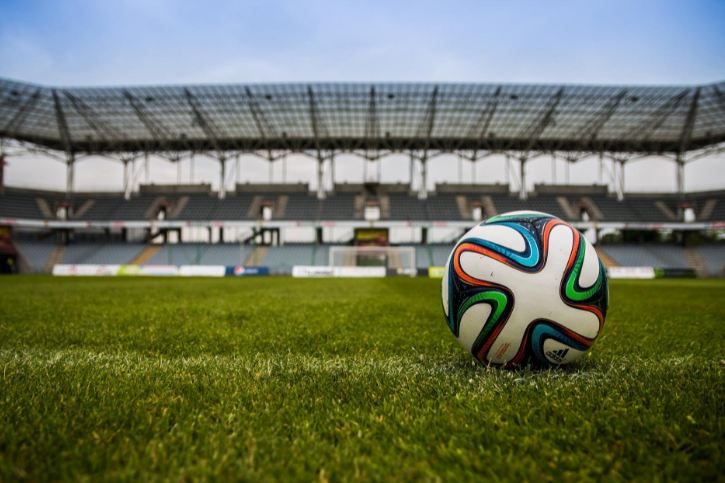The Amazing History of the European Football Championship

Soccer is the most popular ball game in the world in terms of participants and spectators. It is the most-watched sport, attracting an average of 3.2 billion viewers according to audience data from official coverage of the FIFA World Cup. This makes it the most-watched live event on television in the world on average in the 21st century. It is one of the biggest soccer tournaments. In the first version of the UEFA European Championship, only four teams (Czechoslovakia, France, Soviet Union, and Yugoslavia) played but were expanded to eight teams in 1980. Since then, the tournament has been expanded twice to include additional teams. Meanwhile, click the link to check out the best online casinos nz 2022.
History
After a two-year preliminary round between 17 national football clubs, the first final of the European Championship (then known as the European Cup of Nations) was played. Although it was held in 1960, the idea behind it is much older. In 1927, Henri Delaunay, who was the French Football Federation’s administrator at the time, came forward with a suggestion of an All-Europe football tournament. But Delaunay couldn’t live to see the tournament officially start. So, in recognition of his outstanding services in the cause of European football, they named the trophy after him "Coupe Henri Delaunay."
The trophy of the EURO championship is a juggling figure of a boy on the back, and on the front, the words "Championnat d'Europe,” and "Coupe Henri Delaunay" are carved in. It was refashioned in 2008 and, and now it is made of sterling silver. It weighs 8 kilograms and is measured to be 60 centimeters in height. And to honor the winning teams, their names are engraved on the back. If you also want to see the list of the most trusted real money online casinos Australia, open the given link.
Qualification Format
For the qualification, 32 teams play in the double round-robin group, which sets the scene for two qualification streams for teams who fail to secure proper entry into the tournament. These two streams are then split up between the winning teams of the league championship and the national championship.
The number of the teams entering the UEFA champions league from each association is decided with the help of statistics (coefficients) used for ranking and seeding teams in the club and international competitions of the member’s association. If the association's statistics are high, more teams get to represent the association in the Champions League, and due to this, the association’s teams will compete in fewer qualification rounds. The remaining national champions fight for the remaining four of the six places in a 6-round tournament. While the other two are taken up by the winners of a three-round tournament played between 11 clubs of different associations.
Winning Teams over the Years
The two nations that have been most successful in tournament history are Germany and Spain. These two won three titles each. Spain has been the only nation to defend its title since 2012 successfully. Germany has played more games (53), scored more goals (75), and won more (28). In 1984, France was the only country to win all its games in one tournament (5 out of 5). In 1992, Denmark won the title with just two wins in five games. England also won silver, Belgium, Czechoslovakia, Hungary, and the Netherlands bronze. No match of the match for third place has been played since 1984.

The last match of EURO 1960 was played between the Soviet Union and Yugoslavia. After the eleventh draw, the Soviets took home the first UEFA trophy. In 1964 the second edition of the European Championship took place in Spain. This was Spain’s first victory against the Soviet Union. In 1968, the Italians took home the trophy for the 3rd EURO Championship. In 1972, West Germany triumphed the final 3-0 over the Soviet Union. In 1976, the result was determined with penalties, and Czechoslovakia won. In UEFA 1980, Germany marked history as the first team to win the cup twice. In UEFA 1984, France had its first victory against Spain. The Netherlands won the UEFA trophy for the first time in 1988. In the final 1992 EURO, Denmark beat Germany 2-0. EURO 1996 was another victory for Germany.

2000 final was played in Rotterdam between France and Italy. France won with a golden goal in extra time. UEFA 2004 was held in Portugal and is considered the most surprising event since most candidates were eliminated in the group stage. Thus, Greece won the European Championship for the first time, surprising everyone. 2008 UEFA was another win for Spain. In UEFA 2012, Spain matched Germany three times in winning the trophy. UEFA 2016 was Portugal’s first victory. UEFA 2020 was to take place in 11 cities of 11 countries but was postponed due to Covid-19 and rescheduled for June 11 and 11 July 2021. This time Italy won their 2nd EURO trophy against England, beating them in penalties. This was the first EURO final to be conducted in an odd year due to circumstances.
To put in a nutshell, the most successful teams in the European championship history,
- Germany won three trophies in six finals
- Spain won three trophies in four finals
- France won two trophies in three finals
Memorable Moments in the Championship
Over the course of years, the European championship has had many memorable moments. Italy defeated Yugoslavia in the final replay, but they had to beat the Soviets first. This was an era before the penalty shoot-outs. So, when in 120 minutes neither Italy nor Soviets could score a goal, the tight game was decided by a mere coin toss, and Italy took the trophy in 1968. In 1976, Czechoslovakia won against West Germany with a penalty shoot-out. The game depended on Antonin Panenka, who took a very bold and risky move and invented the Panenka technique, and brought the trophy home.
The win of Denmark in 1992 EURO was a complete shock. Denmark couldn’t qualify for the championship that year but was given a second chance when Yugoslavia was disqualified. They re-entered by being the group’s runners-up and defeated Germany to win its first-ever trophy. The 1996 final between Germany and the Czech Republic was a nerve-wrangling one. Oliver Beirhoff of Germany scored a 95th-minute goal, which was his second goal in twenty-two minutes, and brought the trophy home with his Golden Goal.
Conclusion
Without a shadow of a doubt, football tournaments are the biggest sports events of the year and bring together the whole world. Among international soccer tournaments, the European championship ranks second after the world championship and is one of the most anticipated sports events in the world. EURO 2020 was the best example of the football fans’ dedication. Even in unfortunate circumstances, the EURO 2020 final had an accumulative audience of 5.3 billion. Now, people are looking forward to the next EURO cup, which will be held in 2024 and will take place in Germany.




